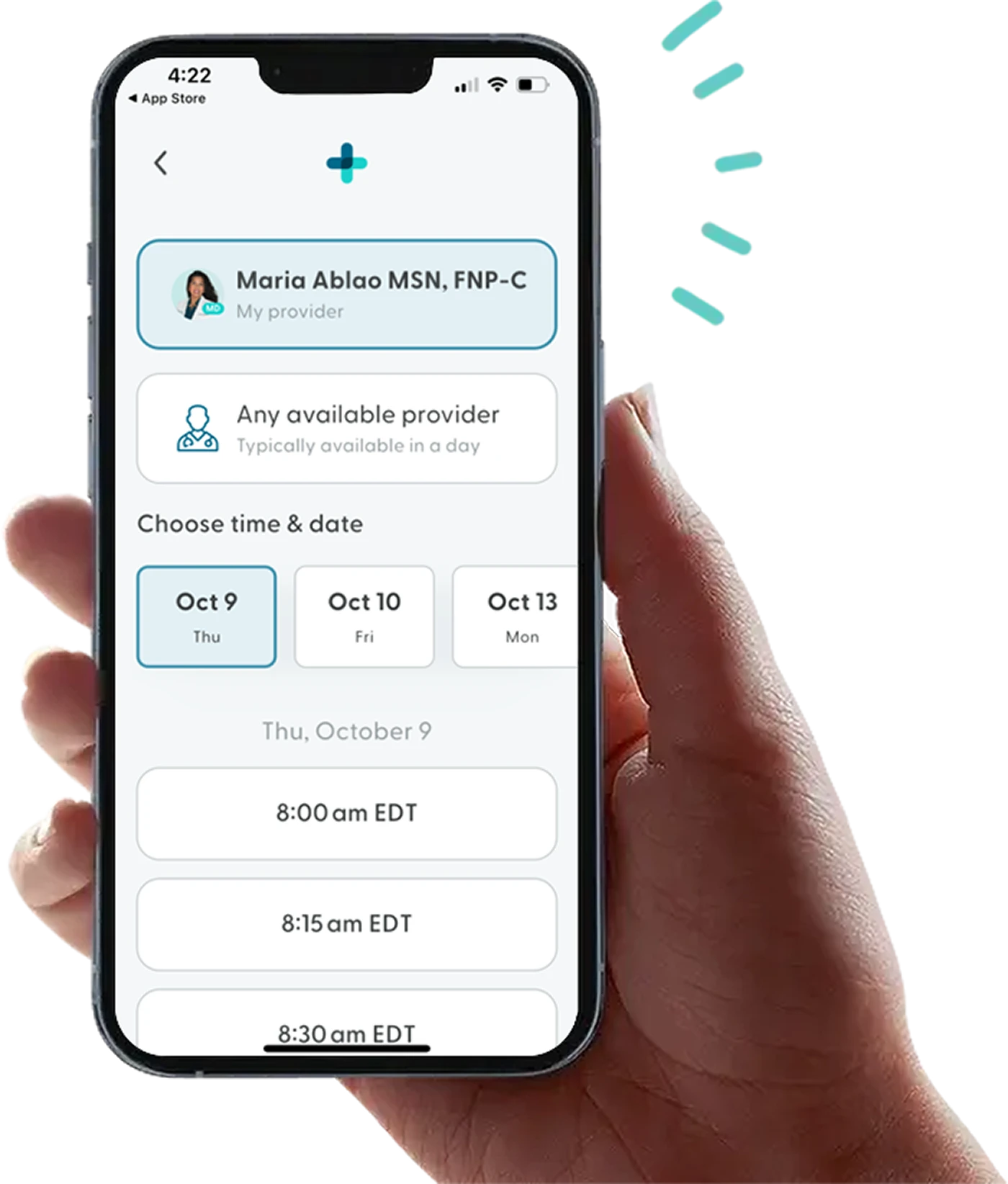Is Elinzanetant Effective for Hot Flashes and Night Sweats?
Menopause treatment has progressed over the years to help women cope with the symptoms. Most women approach menopause in their 50s. Symptoms may include night sweats, hot flashes, mood swings, and more.
In the past, women have often felt ignored by healthcare professionals when discussing menopause. Fortunately, today, a healthcare provider can prescribe either a hormonal or non-hormonal treatment like elinzanetant to reduce the severity of symptoms. Elinzanetant is still being reviewed by the FDA, but has shown promising benefits for menopausal women.
Elinzanetant targets night sweats and hot flashes specifically, a few of the most common menopausal symptoms. Recently, studies have been done assessing the effectiveness of this medication and other menopausal treatment options. While elinzanetant is safe for most women, a healthcare provider may suggest elinzanetant to some women more than others.
What is Menopause?
The menopausal transitional period is a phase in a woman’s life where estrogen and progesterone levels drop. Estrogen and progesterone help maintain natural bodily processes. The following are common symptoms associated with this transition (perimenopause to post-menopause):
Hot flashes
Night sweats
Trouble sleeping
Mood swings
Vaginal dryness
Loss of libido
How Does Elinzanetant Work?
As a woman approaches menopause, neurokinins may work harder than needed to balance out your body’s temperature. As a result, women experience hot flashes and night sweats. Hot flashes occur when estrogen levels decline. In addition to night sweats and hot flashes, women may experience the following symptoms:
Breast tenderness
Headaches
Bloating
Elinzanetant works by blocking neurokinin-1 and neurokinin-3 in the nervous system. Neurokinins are neuropeptides in the brain that play a role in carrying out neurological processes.
What are the Benefits of Elinzanetant?
In one study, health experts found that women on the medication experienced fewer than six hot flashes a day. Within the study, participants took 120 mg (milligrams) of a once daily oral elinzanetant pill. After 12 to 16 weeks, women in the study saw improvements in sleep quality as well. Health experts believe elinzanetant may be a safe form of menopause treatment for women at an increased risk for breast cancer.
Key Point: What’s the Difference Between Elinzanetant and Fezolinetant?
Fezolinetant is an FDA-approved nonhormonal medication for menopausal symptoms. Both elinzanetant and fezolinetant help reduce hot flashes in menopausal women.
Fezolinetant works slightly differently by targeting neurokinin-3 antagonists more. One study found that elinzanetant may be more effective at reducing the severity of menopausal symptoms in women. However, women may be more likely to experience mild side effects while taking elinzanetant.
What are the Side Effects of Elinzanetant?
The most common side effects associated with elinzanetant are fatigue, drowsiness, and headache. Some women may experience additional menopausal side effects as well while going through menopause. In some cases, a healthcare provider may prescribe HRT or other medications as part of your treatment plan to manage menopause.
Additional Options for Menopause Treatment
Hormone replacement therapy (HRT) is considered the most effective treatment for hot flashes and night sweats because it addresses the root cause – declining estrogen levels during menopause. For women who cannot take or prefer to avoid hormonal treatment, elinzanetant offers an effective nonhormonal alternative that can significantly reduce symptoms.
Lifestyle habits to improve menopausal symptoms
Generally, it’s important for women to stay consistent with self-care and a healthy lifestyle as they approach their 50s and 60s (the most common age range for menopause to begin).
The following healthy habits may help reduce the severity of menopausal symptoms like night sweats and hot flashes:
Practice deep breathing exercises
Limit your alcohol consumption
Quit smoking
Stay physically active
Eat a well-balanced diet
Get consistent sleep
This being said, no amount of lifestyle changes will entirely eliminate the symptoms that appear in the time leading up to menopause, as it’s a hormone issue.
How Does HRT Work for Menopause Treatment?
HRT helps balance estrogen and progesterone in the body to reduce menopausal symptoms. In the past, HRT use was discouraged due to misleading study results about the risk of breast cancer. With more recent research, health experts have found HRT to be a safe and extremely effective form of menopausal treatment.
Estrogen plays a key role in keeping your bones strong, balancing your mood, and your overall well-being. HRT may also help improve cognitive function and prevent certain health conditions affecting the bones, like osteoporosis.
There are several options for administering HRT. You can take HRT as an oral tablet, patch, injection, gel.
Where Can I Learn More About Menopause?
If you’re interested in knowing if HRT or other menopause treatments could work for you, LifeMD can help. The LifeMD Women’s Health Program was crafted with pre- and postmenopausal women in mind. With LifeMD, you can receive guidance from a licensed healthcare provider for HRT and other forms of menopausal treatment from the comfort of your home.
Get started today by taking better care of yourself as your health needs change.
More articles like this
Feel better with LifeMD.
Your doctor is online and ready to see you.
Join LifeMD for seamless, personalized care — combining expert medical guidance, convenient prescriptions, and 24/7 virtual access to urgent and primary care.

 Medically reviewed and edited by
Medically reviewed and edited by 







